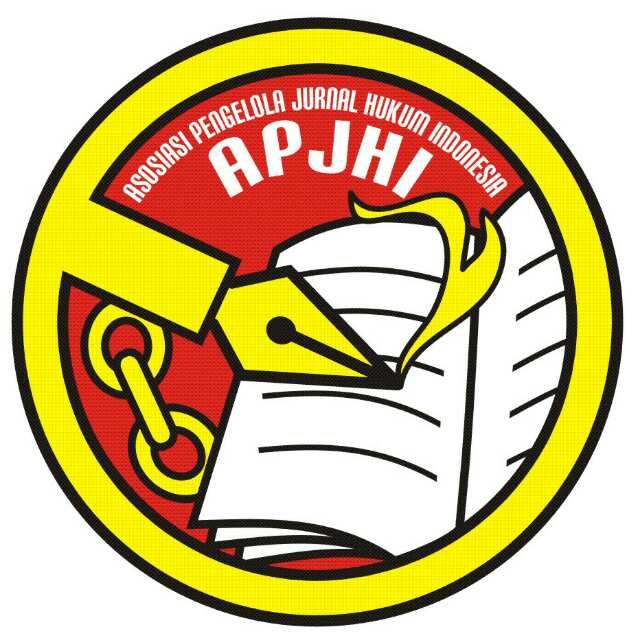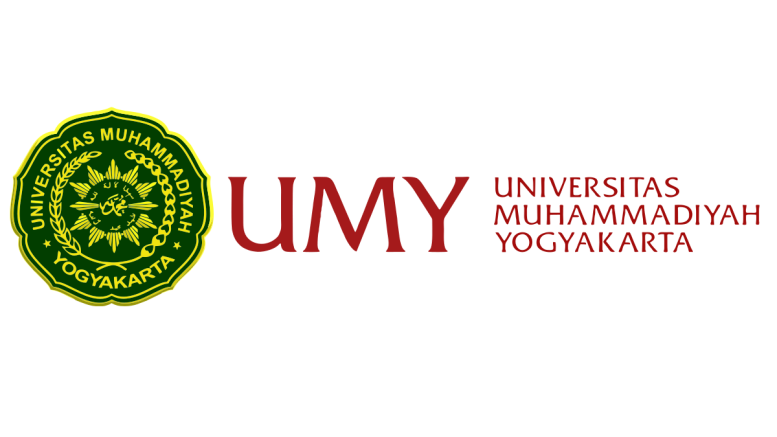Pardon for Corruptors: An Examination of Repentance and Restitution in Islamic Criminal Law
DOI:
https://doi.org/10.33506/js.v11i3.4365Keywords:
Pardon, Corruption, Asset Recovery, Repentance, RestitutionAbstract
This study aims to analyze the granting of clemency to perpetrators of corruption who return assets from the perspective of positive law and Islamic criminal law. This study examines the definition, elements, and mechanisms for handling corruption based on Law No. 31 of 1999 jo. Law No. 20 of 2001, Law No. 22 of 2002, and discusses the concept of jarimah ghulul in Islamic law, which emphasizes sincere repentance and restitution as prerequisites for divine forgiveness.
The method used in this study is legal-normative and literature review to compare national legal norms with the principles of maqashid syariah, with a focus on maintaining justice, deterrence, and prevention of criminal acts.
The novelty of this research lies in the fact that sincere repentance accompanied by restitution is an essential element for obtaining divine forgiveness, without neglecting the function of ta'zir punishment as a deterrent to prevent the repetition of the same act.
The results of the study indicate that although clemency in positive law can be seen as a humane step toward the rehabilitation of offenders, its application must be accompanied by the condition of full asset restitution and a thorough evaluation of the socio-economic impact. This study provides recommendations for reforming pardon policies and integrating Islamic legal principles into regulations governing the restitution of corrupt officials' assets, with the aim of supporting comprehensive, fair, and effective anti-corruption efforts.
These conclusions are expected to serve as a reference for policymakers and legal practitioners in formulating pardon mechanisms that not only prioritize humanitarian aspects but also uphold justice and prevent the recurrence of similar criminal acts.
References
Aisyah, Faira, Nurdin Nurdin, and Tri Amanatun Nadliroh. “Taubat Sebagai Penggugur Had Terhadap Pelaku Tindak Pidana Pencurian (Jarimah Sirqah) Perspektif Imam Al Nawawi.” JATISWARA 37, no. 1 (2022): 78–92. https://doi.org/10.29303/jtsw.v37i1.367.
Alavi, Ivan Najjar, Watni Marpaung, and Arifuddin Muda Harahap. “Reconstruction of Confiscation of Corruption Convicts’ Assets in Restitution of State Financial Losses Islamic Law Analysis.” JURNAL AKTA 12, no. 1 (2025): 72–84. https://doi.org/10.30659/akta.v12i1.43729.
Aldamia, Cholfia, and Refi Meidiantama. “Pengembalian Aset Pelaku Tindak Pidana Korupsi Dalam Hukum Internasional Dan Implementasinya Pada Hukum Nasional Indonesia.” Muhammadiyah Law Review 6, no. 1 (2022): 54–68. https://doi.org/10.24127/lr.v6i1.1847.
Alfarisi, Mochammad Hilmi. “Urgensi Peran Peradilan Al–Mazalim Dalam Menyelesaikan Sengketa Administrasi.” Minhaj: Jurnal Ilmu Syariah 1, no. 2 (2020): 103–18. https://doi.org/10.52431/minhaj.v1i2.306.
Alyafedri, Youfan, and Ismail Koto. “Kebijakan Hukum Terhadap Problematika Pemberian Pemenuhan Hak Restitusi Korban Tindak Pidana Yang Diatur KUHAP Dan Diluar KUHAP.” UNES Law Review 6, no. 4 (2024): 11643–53.
Amalia, Susi. “Analisis Dampak Korupsi Pada Masyarakat (Studi Kasus Korupsi Pembangunan Shelter Tsunami Di Kecamatan Labuan Kabupaten Pandeglang).” Epistemik: Indonesian Journal of Social and Political Science 3, no. 1 (2022): 54–76. https://doi.org/10.57266/epistemik.v3i1.77.
Benuf, Kornelius, and Muhamad Azhar. “Metodologi Penelitian Hukum Sebagai Instrumen Mengurai Permasalahan Hukum Kontemporer.” Gema Keadilan 7, no. 1 (2020): 20–33. https://doi.org/10.14710/gk.2020.7504.
Djufri, Darmadi, Derry Angling Kesuma, and Kinaria Afriani. “Model Pengembalian Aset (Asset Recovery) Sebagai Alternatif Memulihkan Kerugian Negara Dalam Perkara Tindak Pidana Korupsi.” Disiplin : Majalah Civitas Akademika Sekolah Tinggi Ilmu Hukum Sumpah Pemuda 26, no. 2 (2020): 120–32.
Faridzi, Mohammad Al, and Gunawan Nachrawi. “Kualifikasi Kejahatan Luar Biasa Terhadap Tindak Pidana Korupsi (Putusan Mahkamah Agung Nomor 301 K/Pid.Sus/2021).” Jurnal Kewarganegaraan 6, no. 2 (2022): 3014–19.
Fauzi, Suyogi Imam. “Politik Hukum Pemberian Grasi, Amnesti Dan Abolisi Sebagai Konsekuensi Logis Hak Prerogatif.” Jurnal Hukum & Pembangunan 51, no. 3 (2021): 621–36.
Hermawan, Dicky, Agung Putra Fatullah, Cayadi Cayadi, Ahmad Hidayat, and Zainab Ompu Jainah. “Analisis Dampak Korupsi Dalam Pembangunan Infrastruktur Di Negara Berkembang.” Innovative: Journal Of Social Science Research 4, no. 1 (2024): 4259–4271.
Iqsandri, Rai, and Andrew Shandy Utama. “Analisa Hukum Pemberian Grasi Terhadap Terpidana Kasus Korupsi Gubernur Riau Annas Maamun.” Ensiklopedia Sosial Review 3, no. 2 (2021): 179–86. https://doi.org/10.33559/esr.v3i2.783.
Karim, Dudung Abdul. “Pidana Korupsi Dalam Tafsir Al-Jamiâ€TM Al-Ahkam Al-Qurâ€TMAn Karya Al-Qurthubi.” Al-Tadabbur: Jurnal Ilmu Al-Qur’an Dan Tafsir 8, no. 02 (2023): 343–58.
Lee, Chien-Chiang, Chih-Wei Wang, and Shan-Ju Ho. “Country Governance, Corruption, and the Likelihood of Firms’ Innovation.” Economic Modelling 92 (2020): 326–38. https://doi.org/10.1016/j.econmod.2020.01.013.
Marzuki, Peter Mahmud. Penelitian Hukum Edisi Revisi. Cet. 8. Jakarta: Kencana Prenada Media Group, 2013.
Parsons, Brandon. “Unpacking Corruption: The Role of Economic Freedom in Developing Countries.” Research in Economics 79, no. 2 (2025): 101044. https://doi.org/10.1016/j.rie.2025.101044.
Rahadi, Andi Arifai, and Adriana Mustafa. “Tinjauan Hukum Islam Pemberian Remisi Terhadap Narapidana Korupsi.” Siyasatuna: Jurnal Ilmiah Mahasiswa Siyasah Syar’iyyah 5, no. 3 (2024): 718–31.
Republik Indonesia. “Undang-Undang Nomor 20 Tahun 2001 Tentang Perubahan Atas Undang-Undang Nomor 31 Tahun 1999 Tentang Pemberantasan Tindak Pidana Korupsi,” 2001.
———. “Undang-Undang Nomor 22 Tahun 2002 Tentang Grasi,” 2002.
Sari, Asih Puspo. “Pemberian Grasi Dan Maaf Dalam Bingkai Kajian Teoritik Tindak Pidana Pembunuhan (Studi Komparatif Hukum Positif Dan Hukum Islam).” Al-Ahkam Jurnal Ilmu Syari’ah Dan Hukum 5, no. 1 (2020): 73–90. https://doi.org/10.22515/alahkam.v5i1.2474.
Sugiyono. Metode Penelitian Kuantitatif, Kualitatif, Dan R&D. Bandung: Alfabeta, 2017.
Suhaina. “Pemberian Grasi Bagi Pelaku Tindak Pidana Korupsi Berdasarkan Undang-Undang Nomor 5 Tahun 2010 Tentang Perubahan Atas Undang-Undang Nomor 22 Tahun 2002 Tentang Gras.” UIN Fatmawati Sukarno Bengkulu, 2023.
Syarbaini, Ahmad. “Terminologi Korupsi Menurut Perspektif Hukum Pidana Islam.” Jurnal Tahqiqa : Jurnal Ilmiah Pemikiran Hukum Islam 18, no. 1 (2024): 1–15. https://doi.org/10.61393/tahqiqa.v18i1.205.
Tamam, Moh Hilmi Badrut, and Andris Nurita. “Korupsi Dalam Perspektif Hadis Imam Bukhari.” El Nubuwwah: Jurnal Studi Hadis 1, no. 2 (2023): 206–33. https://doi.org/10.19105/elnubuwwah.v1i2.9792.
Thamsir, Moh., Hasbi Umar, and Robi’atul Adawiyah. “Maqashid Al-Shariah Sebagai Landasan Humanis Dalam Reformasi Sistem Hukum Pidana.” Journal of Innovation Research and Knowledge 4, no. 8 (2025): 5721–27.
Zaruni, Ahmad, and Ahmad Isnaeni. “Pemaknaan Ghulul Dalam Al-Qur’an Menurut Pandangan Tafsir Klasik Dan Modern.” UNISAN JURNAL 2, no. 3 (2023): 22–35.
Zulkarnain, Muhammad Farid, Hilalludin Hilalludin, and Fida Said As Suny. “Relevansi Pengampunan Korupsi Dalam Perspektif Islam Dengan Hukum Yang Berlaku.” ALADALAH: Jurnal Politik, Sosial, Hukum Dan Humaniora 2, no. 4 (2024): 139–47. https://doi.org/10.59246/aladalah.v2i4.957.
Downloads
Published
How to Cite
Issue
Section
License
Copyright (c) 2025 Liantha Adam Nasution, Fatimah Islamy Nasution, Siti Aminah, Zulfahmi Zulfahmi

This work is licensed under a Creative Commons Attribution-ShareAlike 4.0 International License.











